What is Introverted Feeling (Fi)?
Have you ever been reading articles about personality types online and come across the term “Introverted Feeling”? Perhaps you’ve been confused. Are all Introverts and Feelers Introverted Feelers? Or maybe you’ve heard the term “Fi” and scratched your head, wondering what this jargon means as well. Well, today we’re going to clear up the confusion and give you an in-depth, but beginner-friendly look at what Introverted Feeling really is. Let’s get started!
Estimated reading time: 16 minutes

Table of contents
- The Cognitive Functions
- But What is Introverted Feeling?
- What Introverted Feeling is Not
- Introverted Feeling at Its Best and Worst:
- Introverted Feeling vs. Extraverted Feeling
- Introverted Feeling vs. Extraverted Feeling in Practice
- Fi vs. Fe in Communication:
- More Examples of Introverted Feeling:
- A Look at the Introverted Feeling Types:
- Introverted Feeling Doesn’t Work Alone:
- When Introverted Feeling Becomes Imbalanced:
- Summing It Up:
- What Are Your Thoughts?
- Other Articles You Might Enjoy:
- References:
The Cognitive Functions
First off, Introverted Feeling is one of the 8 cognitive functions that each of the 16 Myers-Briggs® personality types use. Each cognitive function is like a mental tool that you wield at different times, for different reasons. Some types wield the tool of Introverted Feeling constantly. It’s more like an operating system, running in the background of all their decisions, than a tool. The types that are most frequently tapped into Introverted feeling are the ISFPs, INFPs, ESFPs, and ENFPs.
But What is Introverted Feeling?
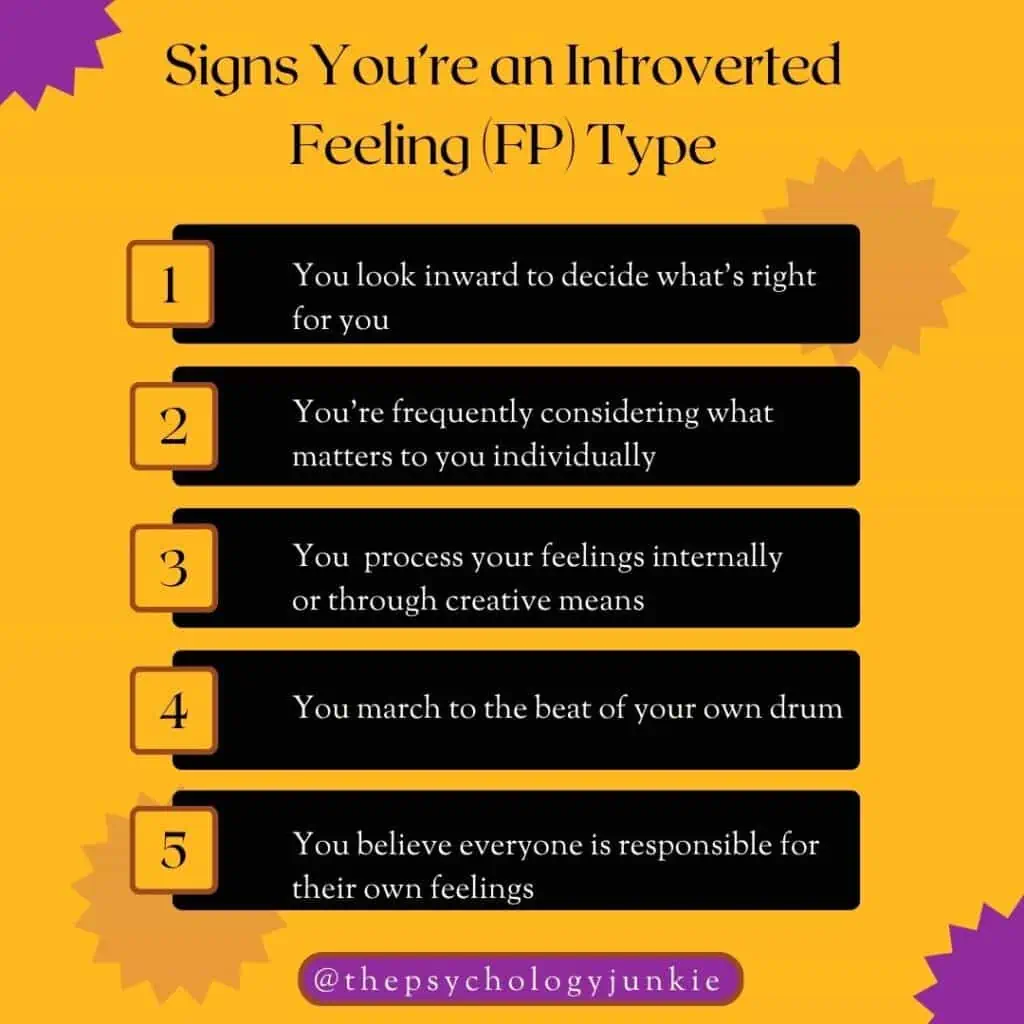
Introverted Feeling, often abbreviated as Fi, is the dominant or auxiliary cognitive function of the ISFPs, INFPs, ESFPs, or ENFPs. This means that it’s the function FPs “live and breathe” without really having to expend a lot of energy.
You could imagine Fi as an internal compass, always pointing towards what feels authentic and resonates with your core self. Rather than being swayed by societal norms or external expectations, Fi-types listen to this inner compass, embracing what feels right to them, even if it goes against the mainstream. It is this pursuit of personal authenticity and emotional sincerity that distinguishes Introverted Feeling. It allows individuals to navigate the world with a quiet yet unyielding allegiance to their unique values.
What Introverted Feeling is Not
A common misconception about Introverted Feeling is that it equates to selfishly pursuing one’s own desires without considering others. This is a pretty sad misinterpretation of such a rich and nuanced function. Introverted Feeling is not a license for self-indulgence or egoism. It’s about remaining true to one’s core values, even when it’s challenging or inconvenient. It’s about making choices that align with your deeply held beliefs, not just chasing after what you want in the moment.
Think of historical figures like Joan of Arc or Rosa Parks, who showcased elements of Introverted Feeling. They didn’t just follow their desires; they stood up for their inherent values amidst daunting circumstances. Their actions weren’t driven by selfishness but by a deep commitment to their personal truths and moral ideals. And they stood up for their values even though it meant a threat to their well-being, comfort, or livelihood as a result.
So, remember, Introverted Feeling isn’t about unthinking self-centeredness. It’s about authenticity, integrity, and sometimes, the courage to stand alone in defense of what one believes is right. Sometimes even when it flies in the face of popular opinion.
Introverted Feeling at Its Best and Worst:
When Introverted Feeling is operating at its best, it champions authenticity, empathy, and deep moral commitment. It is a drive that propels individuals to live in alignment with their personal values, even when they contradict societal norms. It is a ceaseless pursuit of inner integrity and conviction. Albert Camus articulated this beautifully when he said, “Integrity has no need of rules.” This quote captures the essence of Introverted Feeling – a moral compass that doesn’t need the validation of societal rules to know what’s right.
Yet, like any other cognitive function, Introverted Feeling has its pitfalls. At its worst, it can become overly self-centered. Unhealthy FPs may prioritize their beliefs and wants over the needs and perspectives of others. This can lead to a kind of tunnel vision, where only their views matter, and logical input that contradicts their beliefs is disregarded. This skewed perspective could result in making decisions that are isolating and damaging to their relationships. Thus, while Introverted Feeling drives authenticity and integrity, it’s important to remain open to external inputs and be mindful of the effects of our decisions on others.
Introverted Feeling vs. Extraverted Feeling
Understanding the difference between Introverted Feeling (Fi) and Extraverted Feeling (Fe) can be like understanding the difference between listening to your own heart or tuning into the symphony of the world around you.
Introverted Feeling is like a quiet, inner monologue, a deeply personal and solitary experience. It’s akin to being in a forest, where you’re the only one around, listening to your own heart’s echoes and swaying to its unique rhythm. An example could be an artist who, despite popular trends, continues to create art that may not be in vogue but is a true reflection of their inner world. It’s like Emily Dickinson, who spent most of her life in relative solitude, her poems unappreciated in her lifetime, yet they were a true embodiment of her innermost feelings and thoughts.
Extraverted Feeling, on the other hand, is an outward-focused function. Think of it as standing in the middle of a bustling city, absorbing the emotional energy of the crowd, responding to their needs, and harmonizing with their feelings. A person with a strong Extraverted Feeling function is often pleasing, accommodating, and deeply attuned to the emotional atmosphere around them. An example here could be a beloved teacher who knows just when to offer encouragement, when to challenge, and when to comfort, based on the emotional state of their students. They are like Oprah Winfrey, who uses her platform not just to share her own experiences, but to amplify the voices and experiences of others, fostering connection and understanding on a vast scale.
So, while Introverted Feeling is about maintaining internal harmony and staying true to oneself, Extraverted Feeling is about creating external harmony and connecting on an emotional level with others. Both are equally important, beautiful in their own way, and essential to the world of human experiences.
Introverted Feeling vs. Extraverted Feeling in Practice
Many people think that Introverted Feeling types like being different just for the sake of being different. But this is largely not the case. They simply must decide whether what they’re doing feels like “them” or feels “other.” Ultimately, they won’t be happy if what they’re doing feels like a mask, a pretense, or a duty more than an authentic presentation.
Introverted Feeling types are also usually less expressive than extraverted feeling types. Their emotional expressions are often hidden beneath the surface, visible not in the immediate but in introspective, reflective moments. In fact, many Introverted Feeling types feel their deepest feelings for others when they’re away from them and really able to sink into the depths of their inner emotions.
Jungian analyst Daryl Sharp said of Introverted Feeling, “Since the introversion of this type inhibits outer expression, such persons are seldom outspoken about what they feel.
Extraverted Feeling users, in contrast, do look outside themselves to get a grasp of what they want to associate with. They might wear styles deemed popular in the moment or use socially acceptable etiquette to make a good impression. They are typically more people-oriented, seeking to create a warm, welcoming atmosphere. Even the introverted extraverted feeling types (INFJs and ISFJs) have a knack for creating rapport and warmth with others, and crave harmonious, happy connections with others. Being human, they too possess individual values and desires, but the volume of these values might be turned up or down based on their impact on the collective well-being.
FJs are also more demonstrative and expressive; experiencing their feelings for others in real-time. For the FJ, being face-to-face with someone is a much more intimate and raw way to experience the emotion associated with the person. Whereas, for the FP type, a lot of the deepest feelings are experienced in isolation.
Fi vs. Fe in Communication:
Extraverted Feeling (Fe) types, or FJs, have a distinct language of emotional connection. They frequently use words like “we” or “us,” signifying a collective mindset and an appeal to shared values. This language showcases their focus on group dynamics and societal norms. They are more likely to make decisions based on what they believe will benefit the collective, often sacrificing their individual wants for the greater good.
Introverted Feeling (Fi) types, or FPs, exhibit a different linguistic pattern. Their language tends to be more personal and individualistic. They often employ phrases like “I feel” or “I think” which underline their focus on individual values and authenticity. These individuals prioritize their personal emotions and values over collective feelings. They believe in staying true to themselves, often disregarding societal norms or popular opinion, thus decisions are made based on what aligns with their inner values and personal convictions.
Often, Introverted Feeling types have specific causes and values that are very close to their hearts. They are willing to face uncomfortable and challenging situations to stand up for these causes; even if it means being alone, being stigmatized, or going against what’s popular. If you speak to any Feeling-Perceiver at length, you’re bound to find that they have certain core beliefs and causes that they’d devote nearly everything to.
More Examples of Introverted Feeling:
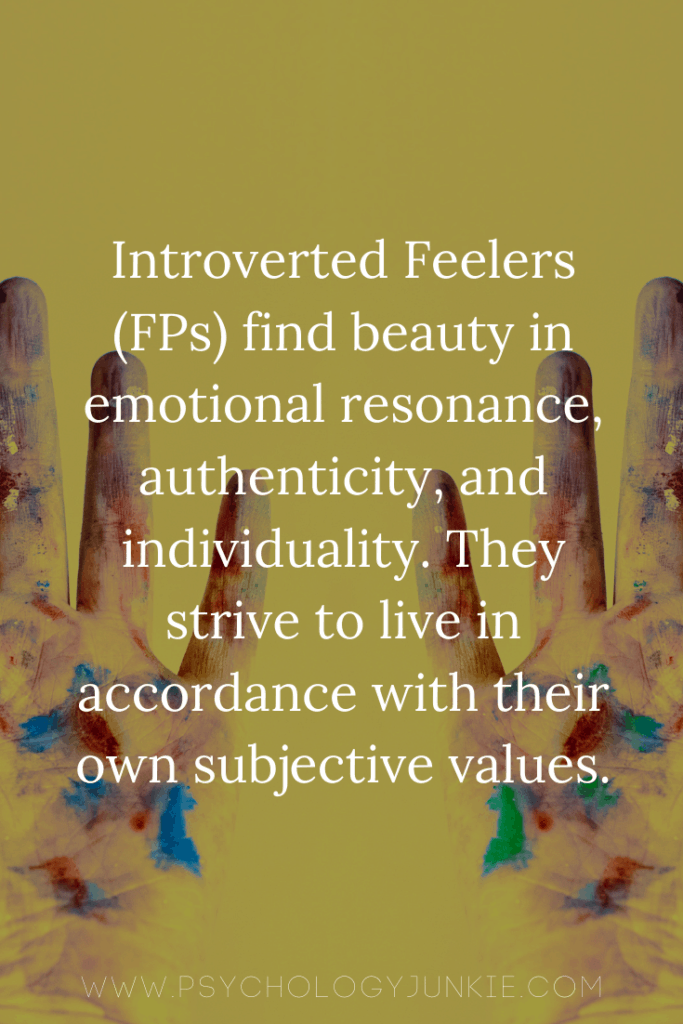
Example 1: The Solo Traveler
One vivid example of Introverted Feeling is the solo traveler who embarks on journeys alone, not as an escape but as a quest for self-discovery and personal growth. Instead of following typical tourist trails, they seek off-beat paths, enjoy local cuisines, interact with local people, and immerse themselves in different cultures. They care less about creating connections with others or looking outside themselves for “guides” about what others like, and care more about discovering for themselves what makes them happy.
Example 2: The Philanthropist
Introverted Feeling can also be seen in the philanthropist who contributes their time, effort, and resources to causes that resonate with their core values. This individual rarely publicizes their good deeds, as their primary motivation is not recognition but the inner satisfaction that comes from making a positive difference in the world.
Example 3: The Dedicated Artist
In the arts, Introverted Feeling often manifests in the form of dedicated artists who refuse to compromise their creative vision for commercial success. They might produce less work, but every piece is a labor of love, inextricably tied to their personal feelings and experiences. These artists are compelled to express their unique perspective of the world, regardless of prevailing trends or market demands.
Example 4: The Independent Thinker
Lastly, the independent thinker epitomizes Introverted Feeling. Such individuals value personal integrity above all else, leading them to question societal norms and seek their own understanding of the world. They have a strong internal framework of values and principles, which they adhere to even in the face of opposition or misunderstanding. This might lead them to unconventional careers or lifestyles, but they embrace this uniqueness as an integral part of their identity.
A Look at the Introverted Feeling Types:
INFPs: The Dreamer
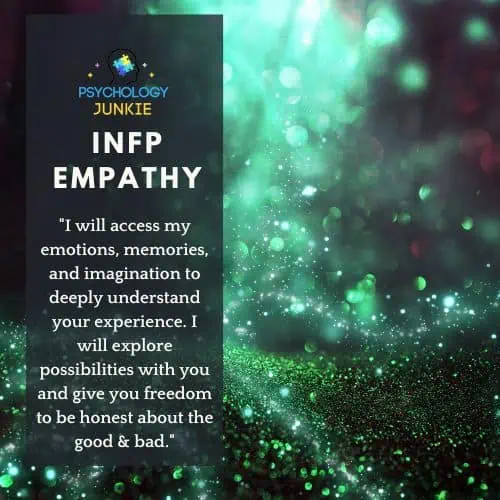
These types are the dreamers and idealists of the world. In deep contemplation, they often explore the profound corners of their inner world, where values, ideas, and inspiration intertwine. They are drawn towards meaningful conversations and tend to approach life with a sense of idealism and rich imagination. While they may seem reserved, they are deeply passionate about their beliefs and causes close to their hearts. Their decisions are directed by their moral compass, often leading them to take the path less trodden. Often they express their values in creative ways; through writing, art, music, or even performance. As intuitives, they are “outside the box” thinkers with an ability to see random connections between things that others miss.
ISFPs: The Virtuoso

ISFPs, often referred to as the virtuosos or artists, are known for their flexible and open-minded nature. They have a unique blend of introverted feeling and extraverted sensing, which makes them keen observers and deeply feeling individuals. In everything they do, they imbue passion and creativity, from their fashion to their hobbies. They enjoy exploring the world around them and frequently express themselves through tactile, aesthetic mediums such as fashion, art, or crafts. Their decisions are often influenced by their gut feelings and personal values. Their strong authenticity and individualistic approach to life can make them trendsetters, breaking societal norms and traditions to follow their own path.
ENFPs: The Visionary
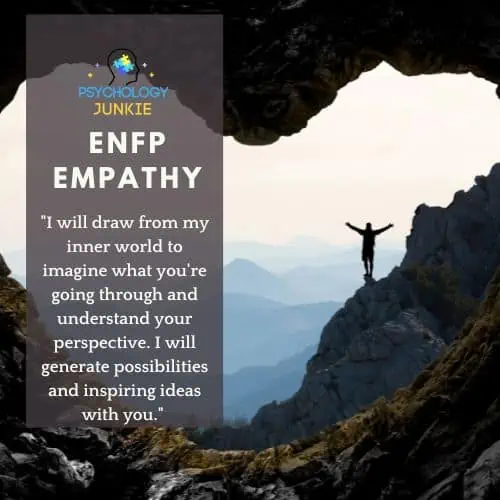
ENFPs, also known as campaigners, are charismatic, enthusiastic, and fiercely individualistic. They have an infectious zest for life and an insatiable curiosity about the world around them. Their primary decision-making function, extraverted intuition, combined with their introverted feeling, makes them adept at understanding the emotions of others while maintaining a strong sense of self. They are eager to explore possibilities, often drawing upon their personal values and emotional understanding to imagine future scenarios and inspire others. They yearn for authenticity and are often driven by their ideals and values rather than societal expectations.
ESFPs: The Champion
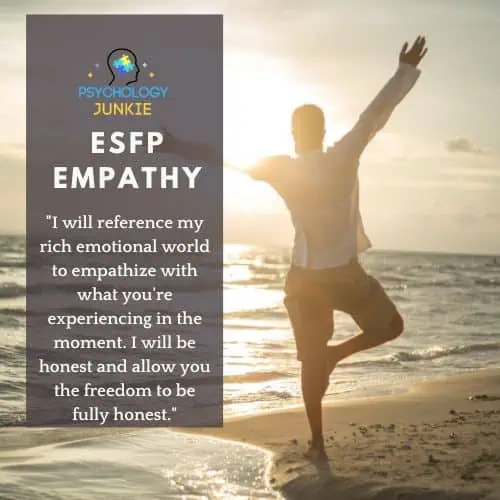
ESFPs, often dubbed the champions or entertainers, are all about seizing the day. Their trademark combination of extraverted sensing and introverted feeling makes them spontaneous, fun-loving, and deeply attuned to their emotional environment. They are highly observant, noticing little details that others might overlook. They tend to live in the moment, savoring the sensory experiences that life has to offer. ESFPs are typically expressive and warm, making connections easily, and they enjoy sharing their experiences with others. This doesn’t mean they lack depth, however. Like other Introverted Feeling types, ESFPs have a strong sense of identity and personal values, which they may express through their humor, style, creative expressions, or causes. They might break societal norms to stay true to their values, and their decisions are often based on what aligns with their inner moral compass.
Introverted Feeling Doesn’t Work Alone:
Introverted Feeling (Fi) and Extraverted Thinking (Te) function together as a team within the personality structure, often serving as a balancing act of sorts. While Fi drives individuals to make decisions based on their values and personal feelings, Te pushes for logical reasoning and practicality.
Consider an INFP, for instance. This personality type uses Fi as their dominant function, making decisions based on their values and feelings. However, their Te comes into play as their inferior function, exerting influence when they need to make objective decisions or organize their external environment. An INFP might typically choose a career based on their personal interests and values, such as becoming a writer or an artist. However, their Te might surface when they need to consider the practical aspects, like earning a stable income or choosing a career with job security.
An ESFP, on the other hand, uses Te as their tertiary function. This personality type is usually spontaneous and driven by their values and a healthy dose of realism. But when they need to plan for the future, make logical decisions, or organize their life in a practical way, their Te kicks in. For instance, an ESFP might decide to start a business based on their passion for food or fashion, but they would also need to employ their Te to handle the business logistics, such as budgeting, planning, and operational efficiencies.
In essence, while Fi provides the moral compass and personal motivation, Te ensures that decisions are also grounded in logic, effectiveness, and practicality. This dynamic interplay between Fi and Te can lead to a well-rounded and balanced approach to life.
When Introverted Feeling Becomes Imbalanced:
Occasionally, Introverted Feeling types (FPs) might become imbalanced, heavily favoring their feelings and values while overlooking the practical input of Extraverted Thinking (Te). This imbalance can manifest in various unhealthy ways.
When FPs over-rely on their Introverted Feeling, they can become excessively idealistic or subjective, making decisions solely on their personal feelings and values without considering the logical consequences or practical implications. For example, an INFP might reject a well-paying job because it doesn’t align with their passion, without considering the financial stability it might provide or the fact that it might ease their stress-load enough that they could do more for their passion as a result. Similarly, an ESFP might make impulsive decisions based on their immediate feelings, without contemplating the long-term impacts.
Overemphasis on Introverted Feeling can also lead to an inability to accept criticism or differing views, as FPs might take these as personal affronts to their deeply-held values. They may become overly sensitive or defensive, leading to conflicts or strained relationships. Or they may demonize people who don’t hold the same values as their own.
Moreover, FPs might struggle with executing their dreams or ideas in the real world, as they might overlook the practical details, organizational aspects, or logical steps needed for implementation. An ISFP artist might have a vision for a grand art installation but struggle to plan the logistics or manage the budget effectively.
In the worst scenario, this imbalance can lead to a state of inertia or indecisiveness, where FPs feel paralyzed by the gap between their ideal world and the harsh realities of life.
To avoid these pitfalls, it’s essential for FPs to nurture their Extraverted Thinking, appreciating its value in providing a balanced, practical perspective. While Introverted Feeling provides the moral and emotional compass, Extraverted Thinking offers the roadmap to navigate the real world effectively, ensuring that the FPs’ values and passions can translate into tangible, achievable goals.
Summing It Up:
- Introverted Feeling (Fi) serves as a personal compass, guiding decisions based on deeply held values and personal beliefs.
- Fi gives someone a strong sense of identity and individuality, often leading the user to “march to the beat of their own drum”
- Fi cares about what is authentic more than what is popular or socially acceptable
- Fi is attuned to the emotional environment, enabling a deep understanding of personal and others’ emotions, and fostering empathy and compassion.
- When balanced with Extraverted Thinking (Te), Fi can contribute to a well-rounded decision-making process that considers both personal values and logical practicalities.
- When imbalanced, over-reliance on Fi can lead to over-idealism, subjectivity, and neglect of practical or logical considerations.
- Fi can inspire creative and unique expressions of self, often seen in personal style, artistic endeavors, or advocacy for causes aligned with personal values.
- Fi easily mirrors others emotions, by putting itself in others shoes (“How would I feel if this happened to me?”)
What Are Your Thoughts?
We’d love to hear your thoughts on this topic. Perhaps you’re an Introverted Feeler and have experiences and insights that could add depth to this conversation. Or maybe you’re just passionate about MBTI® and have observed these dynamics in others. Either way, your perspective is valuable. Please, feel free to share your experiences, insights, and observations in the comments below. We believe that through sharing and open dialogues, we can all gain a deeper understanding of ourselves and others!
Other Articles You Might Enjoy:
How You Use Introverted Feeling, Based On Its Location in Your Cognitive Function Stack
The Unique Empathy of Each Myers-Briggs® Personality Type
References:
Building Blocks of Personality Type by Leona Haas and Mark Hunziker (2006, Eltanin Publishing)
MBTI® Manual – A Guide to the Development and Use of the Myers-Briggs Type Indicator® Instrument by Isabel Briggs -Myers, Mary H. McCaulley, Naomi L. Quenk, and Allen L. Hammer (CPP, Inc. 2003)









Hello, Mrs. Susan Storm.
I really liked this article about Introverted Feeling that you’ve wrote. So relatable to me as an INFP, which is my dominant cognitive function. Indeed I expressed myself through writing, because often times it’s hard for me to speak up about my feelings than write it down. Writing is different kind of joy. Usually, I found myself lost track of time and space when writing (is it called “flow state?”). And this article just accurately described Fi as well as how I feel! I truly satisfied to read this article.
Once again, thank you from the bottom of my heart.
Autumn
Thank you Autumn! I’m so glad this article resonated with you! It means so much to me to get feedback like yours. I also relate to wanting to write down feelings more than talk about them; it’s so much easier to process that way (I’m an INTJ). Have you ever published any of your writing?
This was an excellent, fully understandable explanation, thank you! I really appreciated the separation into the three possible iterations of Fi.
I can see I have some work to do to build up my Te and mature my Fi. Time to finally get some therapy, possibly? Lol
Thank you for such a useful article.
I’m so glad you enjoyed this Natasha! I hoped it would make the differences between Fe and Fi a little more clear and distinct. Thank you for letting me know that it resonated! And I wish you all the best in developing Fi & Te. God knows, I have work to do in getting balance as well 🙂
Now that was what I was trying to say. Thank you for saying it for me. As an INFP for 64 years, I wish somebody would. How do you keep track of all those personality and subpersonality types?